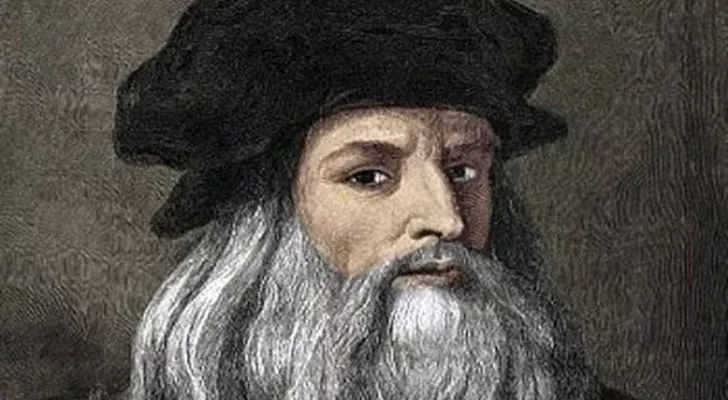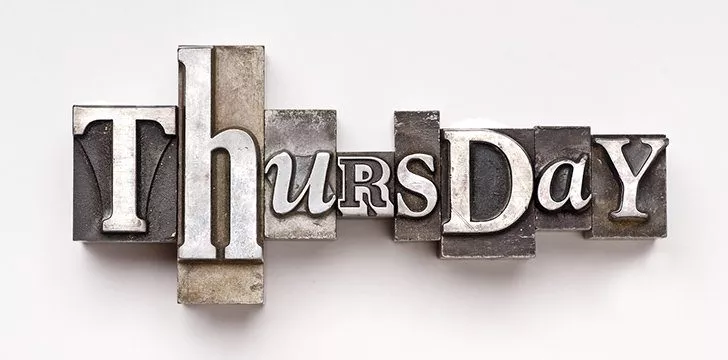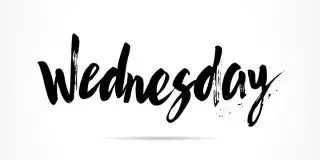Thursday is sometimes referred to as “Friday’s Friday,” meaning it’s the herald of Friday and, therefore, the weekend.
Many students call Thursdays ‘Thirsty Thursdays” due to a decreasing number of lessons students have on a Friday, making it the day to start their weekend drinking.
Thursday is a day featured heavily in Christian lore, and it’s also the traditional day U.K. elections are held on.
So let’s take a look at all the interesting facts about Thursday!
The name Thursday is derived from the Old English Þūnresdægand the Middle English Thuresday (with loss of -n-, first in northern dialects, from the influence of Old Norse Þorsdagr) meaning “Thor’s Day,” after the Norse God of Thunder and son of Odin, Thor.
Many Germanic-derived languages name Thursday after Thor, like “Torsdag” in Denmark, Norway, and Sweden, “Donnerstag” in Germany, and “Donderlag” in the Netherlands.
As Jupiter is the Roman equivalent of Thor, the Latin name for Thursday was “lovis Dies,” meaning “Jupiter’s Day.”
In Latin, the possessive case of Jupiter was either “lovis” or “jovis,” and therefore, most languages derived from Latin reflect this in their naming of Thursday, like the Spanish “jueves,” the French “jeudi,” or the Italian “giovedi.”
In most of the languages spoken in India, the word for Thursday is “Guruvara,” with vara meaning “day,” and “guru” is the style for Brhaspati, who is a guru to the gods and a regent of the planet Jupiter.
In the Judeo-Christian liturgical calendar, Thursday is often abbreviated to Th or Thu.
In Christianity, Maundy Thursday, also known as Holy Thursday, is the Thursday before Easter, which is the day that The Last Supper took place.
“Ascension Thursday” is 40 days after Easter and is when Christ was said to have ascended to heaven.
The astrological and astronomical sign of the planet Jupiter is sometimes used to represent Thursday.
Estonians did not work on Thursdays and called their Thursday nights “evenings of Tooru.”
Some historians say that Estonians would gather in holy woods known as “Hiis” on Thursday nights, where a bagpipe player would sit and play whilst people danced and sang until dawn.
Back in the USSR during the 1970s and 1980s, Thursday was known as the “Fish Day” of the week, where the nation’s food service institutions would serve fish rather than meat.
Thursday is the name of a six-piece post-hardcore rock band from America formed in 1997.
In the U.K., elections are always held on a Thursday. This may seem a little odd, especially considering there’s no specific reason why other than tradition. The last U.K. election to be contested that did not occur on a Thursday was back in 1931, when everybody voted on a Tuesday.
In some American high schools during the 1950s and 1960s, wearing the color green on a Thursday would lead to people believing you were gay.
In the Thai Solar Calendar, the color orange is associated with Thursday.
In Buddhist Thailand, Thursday is considered to be ‘Teacher’s Day,” and it is believed that a person should begin their education on a Thursday.
Thai students still pay homage to this belief by holding gratitude ceremonies for their teachers that are always held on a Thursday.
Following in the same vein, graduation days at universities in Thailand almost always occur on a Thursday.
In Australia, most movie premieres are often held on a Thursday.
On Thursday, June 20, 1782, the fledgling United States of America decided to do some branding and selected the Bald Eagle as its official emblem.
Leonardo Da Vinci, an artist, inventor, pioneer, and genius (and probably a time traveler), was born on Thursday, April 15, 1452.

Sometimes it’s easy to wonder if 40 is the new 30 and 50 is the new 40; why can’t Thursday be the new Friday?
But then we learn so many incredible things way before our time that have made this day so special, so why not just let Thursday be… well, Thursday?
Without little ole’ Thursday, how can we appreciate tomorrow – Friday!











